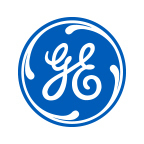Sponsored Content | January 12, 2017

Flexible in-house service support programs help enable optimum care by enhancing staff capability, increasing clinical equipment uptime, and reducing costs.
Innovative clinical service options are signaling a new era of cooperation between care providers and equipment vendors.
Traditionally, care networks have had to choose between performing service in-house and outsourcing service to one or more device manufacturers. GE Healthcare in-house support programs create multiple ways for the parties to work together to achieve important outcomes.
Facing challenges
These programs can help healthcare technology management departments deal with the pressures of a changing marketplace: growth and change in patient population driven by healthcare reform, an increase in complex cases
that require imaging, a challenging reimbursement environment, and widespread mergers and acquisitions.In-house support programs start from the assumption that the care provider and device vendor share, first of all, a responsibility to patients. Rather than simply negotiate intensely over terms, conditions and pricing, the parties seek a mutually beneficial relationship that empowers the Healthcare Technology Management (HTM) team to meet critical needs such as:
Multiple offerings
Shared service agreements under the GE Healthcare AssurePoint™ Service umbrella show how a collaborative, supportive and seamless approach can help fulfill these needs while enhancing HTM teams'skills and capacity, ultimately benefiting patients.
A customized agreement can deliver many of the benefits of a full-service contract by way of the HTM staff. Health system engineers/technicians have responsibility for all service, while GE provides assistance through technical phone support, remote connectivity and other key service, but only when requested. Flexible parts and backup labor agreements are structured to fulfill needs based on anticipated usage rates.
Depending on each agreement's specifics, these can include:
Tangible benefits
An effective and successful shared service model can help enable the following benefits:
In challenging times for healthcare providers, in-house support service programs are compelling alternatives for delivering reliable device uptime and consistent patient care at attractive cost.
AssurePoint and GoldSeal are trademarks of the General Electric Company.® General Electric Company - all rights reserved. JB45551US
Back to HCB News